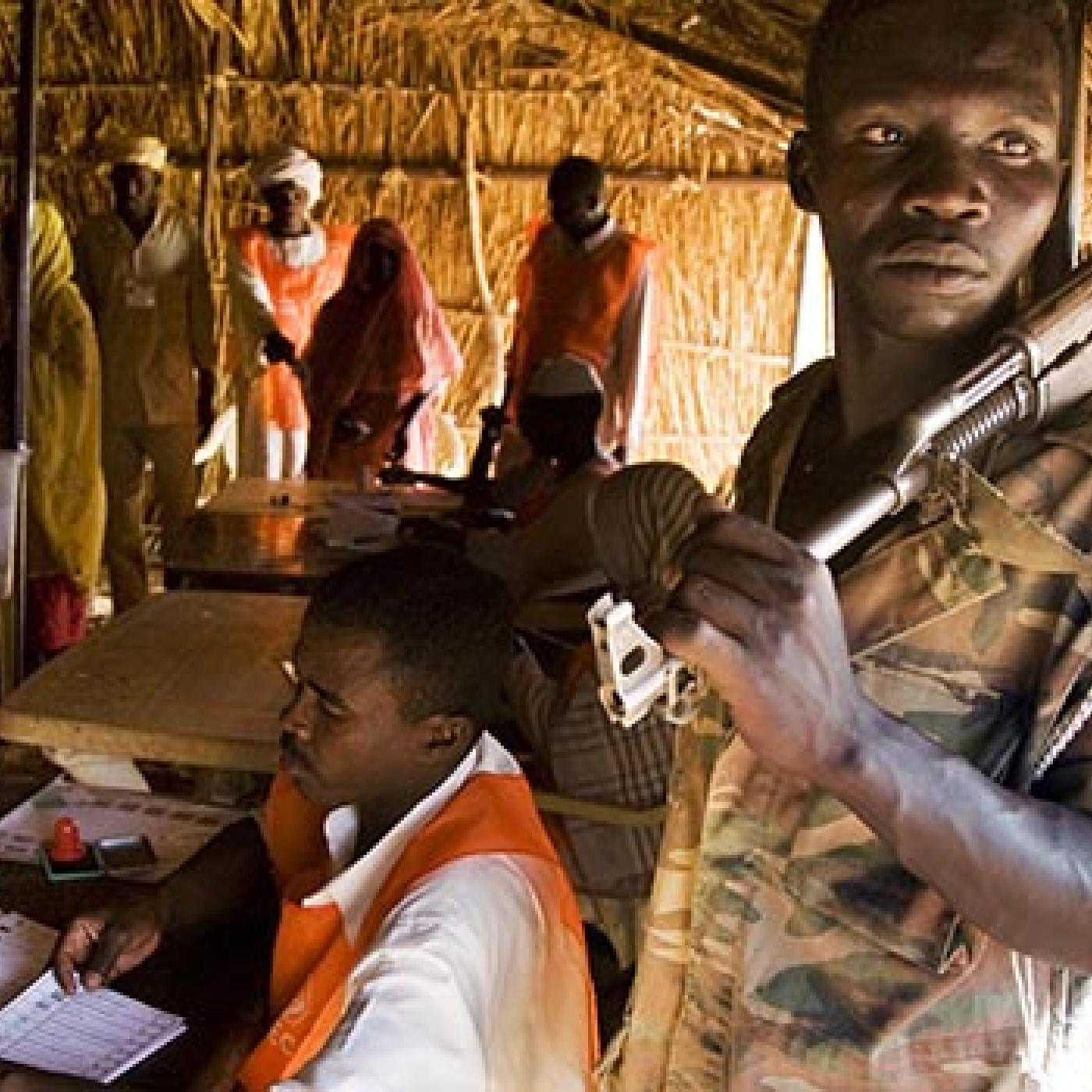Tools & Resources
Filter by
Type
Publication date
Language
Type
Publication date
Language
Publication
Report/Paper
Overcoming Challenges to Democracy and Governance Programs in Post-Conflict Countries: CEPPS Lessons Learned
How can democracy and governance programs be more effective in post-conflict environments?
May 18, 2021
Election FAQ
Elections in Burundi: 2015 General Elections
The Republic of Burundi currently has presidential elections scheduled for July 21, 2015 and senatorial elections scheduled for July 24, 2015. On June 29, 2015, Burundians voted in communal elections for 18 constituencies, in addition to voting in legislative elections for the National Assembly.
News & Updates
Feature
Civic Education for Free and Fair Elections in Burundi
Already marred by political tensions that have their roots in the 12-year civil war that ended in 2005 under the authority of the Arusha Peace and Reconciliation Agreement for Burundi, the 2015 elections will likely be a historic turning point, for better or worse, in Burundi’s democratic transition.
Publication
Brochure/Fact Sheet
Elections and Political Processes Program in Burundi
Burundi is scheduled to hold presidential and parliamentary elections in 2015, amid a political climate marked by a sense of polarization that has endured since the local election in 2010, when the ruling National Council for the Defense of Democracy-Forces for the Defense of Democracy (CNDD-FDD) won by a wide margin, and opposition parties boycotted the four elections that followed.
January 28, 2015
Publication
Report/Paper
Analysis of the Status of Women in Burundi’s Political and Electoral Processes
Burundi is one of few countries in the world to have adopted a gender quota for its legislature in an effort to promote the inclusion and participation of women in the political process. As such, it presents an informative case study on the impact a gender quota can have as a catalyst for more progressive and inclusive governance. Given the International Foundation for Electoral System’s (IFES) commitment to gender equality and women’s participation in electoral processes and government, a thorough analysis demonstrating the effectiveness of quotas is a vital effort that aids IFES in supporting their use as a tool for democratic progress.
July 17, 2014
News & Updates
Feature
A Rights-Based Approach to Electoral Security
In India, Maoist rebels killed 14 people in attacks in Chhattisgarh state as part of a campaign of violence aimed at disrupting the ongoing five-week national election in the world’s most populous democracy. Similarly, in the days leading up to the April 5 presidential election in Afghanistan, the Taliban unleashed a campaign of violence to discredit the electoral process and keep voters from the polls. Many hope this election will be known for delivering the first peaceful transfer of power in the country’s history.
News & Updates
Interview/Speech/Testimony
Capacity Building to Election Security: Clearing the Path for Citizen Participation
Samia Mahgoub, IFES' chief of party in Burundi from 2009 to 2011, has worked on various aspects of the electoral process-from election management body training to election security to voter registration-throughout the Middle East and Africa.
Publication
Report/Paper
Amatora mu Mahoro: Système de monitoring des principes démocratiques et de prévention de la violence électorale 5
Le Projet Amatora Mu Mahoro est une initiative commune d’une dizaine organisations nationales et internationales dont l’objet était le monitoring des principes démocratiques et la prévention de la violence électorale.
September 12, 2010
Publication
Report/Paper
Amatora mu Mahoro: Système de monitoring des principes démocratiques et de prévention de la violence électorale 4
Le quatrième rapport Amatora Mu Mahoro (AMM), présente une analyse des incidents et des indicateurs de violence électorale, ainsi que des initiatives de paix, survenus sur l’ensemble du territoire burundais pendant la période du 5 juillet au 15 août 2010.
August 15, 2010
Publication
Report/Paper
Amatora mu Mahoro: Système de monitoring des principes démocratiques et de prévention de la violence électorale 3e
Le troisième rapport Amatora Mu Mahoro (AMM), présente une analyse des incidents et des indicateurs de violence électorale, ainsi que des initiatives de paix, survenus sur l’ensemble du territoire du Burundi pendant la période du 31 mai au 4 juillet 2010. L’analyse faite des données fournies par les Points focaux du projet AMM permet de conclure que la fréquence des incidents dans les provinces a diminué, passant de 262 cas d’incidents répertoriés dans le second rapport (période du 26 avril – 30 mai) à 180 pour le présent rapport.
July 04, 2010




